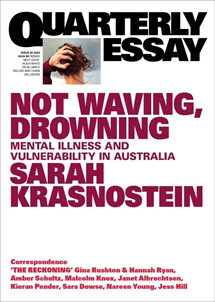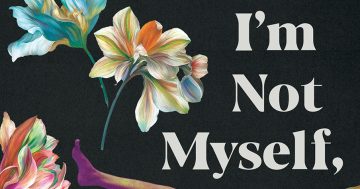Reviewed by Rama Gaind.
By Sarah Krasnostein, Quarterly Essay/Black Inc., $24.99.
 The treatment of those with mental ill-health and Australian attitudes towards vulnerable people is the subject of QE85. The paper is an intimate look at the lives of three women battling extreme mental ill health.
The treatment of those with mental ill-health and Australian attitudes towards vulnerable people is the subject of QE85. The paper is an intimate look at the lives of three women battling extreme mental ill health.
Multi-award-winning author Krasnostein notes that even before the pandemic, the mental health system in Australia was failing to provide adequate treatment and support to those who needed it. The Victorian Royal Commission comprehensively detailed what this looks like on the ground — and the picture is essentially the same throughout the nation, as demonstrated by the 2020 federal Productivity Commission’s inquiry report on mental health.
Mental illness can isolate — and unite. Almost half of all Australian adults will experience mental ill-health during their lives, and almost one-in-five will meet the criteria in a given year. These numbers have likely risen during the pandemic. Because of the continuing strength of the stigma attached to mental illness, most Australians do not seek help for symptoms either at all or until they have drastically deteriorated.
You will see the stigma that attaches to mental illness. In this splendid mix of portraiture and analysis, Sarah argues that we live in a society that often punishes vulnerability, but shows we have the resources to mend a broken system.
“Because this is a story about the mental health system, it is also a story about housing and hospitals and policing and prisons; classrooms, courtrooms, bedrooms and waiting rooms. It is about what could happen when U too R not OK. And while we talk about recovery and redemption, it is always about history.”
“… The moral of this new story is freedom over equality, and one freedom above all — the freedom to be unbothered by others’ needs. However, as we continue to saw ourselves off our perch, mental health might be the great unifier that climate change and the pandemic aren’t.”











